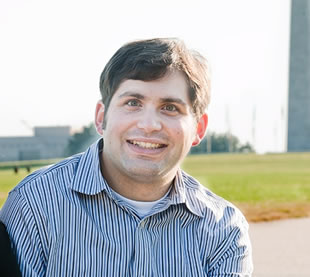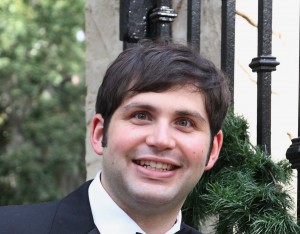
Focus on the Process Not Just Specific Time Management Skills (PHOTO)
When people try to help themselves or their children/teens improve their attention/executive functioning abilities, all too often, people become so focused on the simple practical tools (i.e., checklist, specific app), that they don’t look at the bigger picture or the process involved. By process, I am referring to the mental conceptualization of processing information/events as well as a focus on the steps involved in making changes and initiating one’s self to complete tasks, etc.
For example, if a teen has difficulty keeping track of their homework assignments, a simple tool might be to have them use an app to record assignments. This is an excellent idea for many teens, however, looking at their process in conceptualizing assignments can make a difference in figuring out what type of app is best as part of a comprehensive system. For instance, if a specific teen does better with a written list of assignments, a simple task list might be most helpful for daily assignments. If a teen does best focusing on grouping items to keep track of them, having them use an app with a section for each class and subcategories for assignments in each class might be best. Some individuals find something visually eye catching as helpful in associating things together. Thus, other teens may find color coding assignments in an app based on class, priority, etc. can be most helpful.
Taking the example discussed above, it is helpful to explore with your teen a few items:
- Why are assignments not being recorded to begin with?
- Are they interested in finding a system to keep better track of them?
After looking at why assignments aren’t being recorded, figuring out what type of system (i.e., app or computer program, paper planner) would be best is important. Then, exploring as an example a few of these items would be beneficial in figuring out the best system to use:
- Is it overwhelming to view all daily and long-term assignments at once?
- If they look at a main to-do list, can they mentally process what needs to be completed that day versus what should be completed later in the week, etc.?
- Is your teen able to mentally break down long-term assignments into parts and follow through on completing them without rushing to finish before the deadline?
The above questions are just a few ideas to open the dialogue. If a teen can’t mentally plan ahead, regardless of their ability to follow through on their plan, there likely will be more resistance to a structured homework organization plan for long-term assignments and more assistance will likely be needed to organize themselves. Related to this, you might find that your teen can plan ahead in their head and understands the concept of organizing themselves, but it is the execution that is the difficulty. Some teens don’t like writing down plans because they feel they will want to change it, or feel even if they write it down, they will follow whatever is in their head anyway. These types of factors are important to consider when helping your teen setup a plan that works for them.
In terms of the idea of the process, something I have often found helpful is to have an initial discussion with teens to get them thinking about these things, discuss abstractly a few practical tools, and see over the course of a short period of time, if they try to make any changes. Sometimes opening up the dialogue without a strong push to use specific tools leads to greater willingness to make changes, and then teens and even adults, can slowly incorporate tools into their daily life. Trial and error, in a controlled way, is part of the process, but it is important to focus on both things that work and don’t work. In addition to changes in organization/executive functioning skills through use of specific tools, greater mental awareness, flexibility, and other changes occur by a strong focus on the process.
This article is intended to get you thinking about how in making changes, especially to bring about long-term positive changes, focusing on the process involved is crucial. It should be noted that for most people, it is hard to focus on the process by themselves or with their teen to the degree I am explaining. This is why in many cases, working with professionals who can assist you or your teen both with the process and practical tools is important. Finally, while working with professionals can be very helpful, keeping in mind that this should entail more than simply meeting with someone and getting a list of practical tools each time is vital.
Copyright 2015 Carey A. Heller, Psy.D./The Heller Psychology Group LLC
You can also follow me on Facebook and Twitter:
Twitter (https://twitter.com/HellerPsych)
Facebook (facebook.com/HellerPsychology)
*Disclaimer: The previous information is intended as general guidance based on my professional opinion, does not constitute an established professional relationship, and should not replace the recommendations of a psychologist or other licensed professional with whom you initiate or maintain a professional relationship*



Engage us on Facebook
Follow us on Twitter
Tweets by @mymcmedia